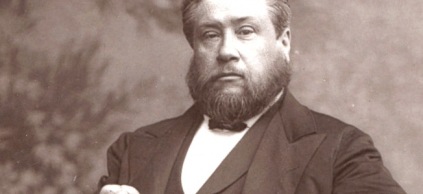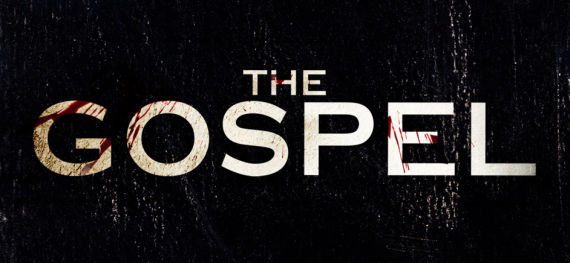Penal Substitution in the Writings of the Church Fathers
Penal substitution has a long and distinguished pedigree, and was expressely articulated by many in the early Church. Sadly, the myth of the doctrine’s supposed ‘late development’ continues to be perpetuated in books and theological seminaries all over the world. To set the record straight, we have included a few extracts from ancient Christian writings here, all of which are discussed in more detail in the book,Pierced for Our Transgressions. Theological students are encouraged to copy and paste them into their essays as required.In many cases, the entire works from which the extracts are taken are available from those wonderful people at the Christian Classics Ethereal Library HERE.
---
Justin Martyr (c. 100-165), Dialogue with Trypho
Ante-Nicene Fathers, vol. 1 (Grand Rapids: Eerdmans, repr. 1969), sect. xcv, p. 247.
XCV — Christ took upon Himself the curse due to us.
For the whole human race will be found to be under a curse. For it is written in the law of Moses, ‘Cursed is every one that continueth not in all things that are written in the book of the law to do them’ [Deut 27:26]. And no one has accurately done all, nor will you venture to deny this; but some more and some less than others have observed the ordinances enjoined. But if those who are under this law appear to be under a curse for not having observed all the requirements, how much more shall all the nations appear to be under a curse who practise idolatry, who seduce youths, and commit other crimes? If, then, the Father of all wished His Christ for the whole human family to take upon Him the curses of all, knowing that, after He had been crucified and was dead, He would raise Him up, why do you argue about Him, who submitted to suffer these things according to the Father’s will, as if He were accursed, and do not rather bewail yourselves? For although His Father caused Him to suffer these things in behalf of the human family, yet you did not commit the deed as in obedience to the will of God. For you did not practise piety when you slew the prophets. And let none of you say: If His Father wished Him to suffer this, in order that by His stripes the human race might be healed, we have done no wrong. If, indeed, you repent of your sins, and recognise Him to be Christ, and observe His commandments, then you may assert this; for, as I have said before, remission of sins shall be yours. But if you curse Him and them that believe on Him, and, when you have the power, put them to death, how is it possible that requisition shall not be made of you, as of unrighteous and sinful men, altogether hard-hearted and without understanding, because you laid your hands on Him?
---
Eusebius of Caesarea (c. 275-339), Proof of the Gospel
Trans. and ed. W. J. Ferrar (London: SPCK; New York: Macmillan, 1920), vol. 2, bk. 10, ch. 1, p. 195.
So it is said: 'And the Lord hath laid on him our iniquities, and he bears our sins.' Thus the Lamb of God, that taketh away the sins of the world, became a curse on our behalf:
'Whom, though he knew no sin, God made sin for our sake, giving him as redemption for all, that we might become the righteousness of God in him.' [2 Cor. 5:21]
... And how can He make our sins His own, and be said to bear our iniquities, except by our being regarded as His body, according to the apostle, who says: 'Now ye are the body of Christ, and severally members?' [1 Cor. 12:27] And by the rule that 'if one member suffer all the members suffer with it,' so when the many members suffer and sin, He too by the laws of sympathy ... takes into Himself the labours of the suffering members, and makes our sicknesses His, and suffers all our woes and labours by the laws of love. And the Lamb of God not only did this, but was chastised on our behalf, and suffered a penalty He did not owe, but which we owed because of the multitude of our sins; and so He became the cause of the forgiveness of our sins, because He received death for us, and transferred to Himself the scourging, the insults, and the dishonour, which were due to us, and drew down upon Himself the appointed curse, being made a curse for us.
---
Hilary of Poitiers (c. 300-368), Homily on Psalm 53 (54)
Nicene and Post-Nicene Fathers, ser. II, vol. 9 (Grand Rapids: Eerdmans, repr. 1976), sect. 1, p. 246.
For next there follows: I will sacrifice unto Thee freely. The sacrifices of the Law, which consisted of whole burnt-offerings and oblations of goats and of bulls, did not involve an expression of free will, because the sentence of a curse was pronounced on all who broke the Law. Whoever failed to sacrifice laid himself open to the curse. And it was always necessary to go through the whole sacrificial action because the addition of a curse to the commandment forbad any trifling with the obligation of offering. It was from this curse that our Lord Jesus Christ redeemed us, when, as the Apostle says: Christ redeemed us from the curse of the law, being made curse for us, for it is written: cursed is every one that hangeth on a tree [Gal. 3:13]. Thus He offered Himself to the death of the accursed that He might break the curse of the Law, offering Himself voluntarily a victim to God the Father, in order that by means of a voluntary victim the curse which attended the discontinuance of the regular victim might be removed.
---
Athanasius (c. 300-373), On the Incarnation
(New York: St. Vladimir’s Seminary Press, 1993), sect. 8, p. 34.
Thus, taking a body like our own, because all our bodies were liable to the corruption of death, He surrendered His body to death in place of all, and offered it to the Father. This He did out of sheer love for us, so that in His death all might die, and the law of death thereby be abolished because, having fulfilled in His body that for which it was appointed, it was thereafter voided of its power for men. This He did that He might turn again to incorruption men who had turned back to corruption, and make them alive through death by the appropriation of His body and by the grace of His resurrection. Thus He would make death to disappear from them as utterly as straw from fire.
Ibid., sect. 9, p. 35.
The Word perceived that corruption could not be got rid of otherwise than through death; yet He Himself, as the Word, being immortal and the Father’s Son, was such as could not die. For this reason, therefore, He assumed a body capable of death, in order that it, through belonging to the Word Who is above all, might become in dying a sufficient exchange for all, and, itself remaining incorruptible through His indwelling, might thereafter put an end to corruption for all others as well, by the grace of the resurrection. It was by surrendering to death the body which He had taken, as an offering and sacrifice free from every stain, that He forthwith abolished death for His human brethren by the offering of the equivalent. For naturally, since the Word of God was above all, when He offered His own temple and bodily instrument as a substitute for the life of all, He fulfilled in death all that was required.
---
Gregory Nazianzus (c. 330-390), The Fourth Theological Oration
Nicene and Post-Nicene Fathers, ser. II, vol. 7 (Grand Rapids: Eerdmans, repr. 1974), sect. v, p. 311.
Take, in the next place, the subjection by which you subject the Son to the Father. What, you say, is He not now subject, or must He, if He is God, be subject to God? You are fashioning your argument as if it concerned some robber, or some hostile deity. But look at it in this manner: that as for my sake He was called a curse, Who destroyed my curse; and sin, who taketh away the sin of the world; and became a new Adam to take the place of the old, just so He makes my disobedience His own as Head of the whole body. As long then as I am disobedient and rebellious, both by denial of God and by my passions, so long Christ also is called disobedient on my account. But when all things shall be subdued unto Him on the one hand by acknowledgment of Him, and on the other by a reformation, then He Himself also will have fulfilled His submission, bringing me whom He has saved to God. For this, according to my view, is the subjection of Christ; namely, the fulfilling of the Father’s Will.
---
Ambrose of Milan (339-397), Flight from the World
The Fathers of the Church, vol. 65, trans. M. P. McHugh (Washington, DC: Catholic University of America Press, 1972), ch. 7, sect. 44, pp. 314–315.
And so then, Jesus took flesh that He might destroy the curse of sinful flesh, and He became for us a curse that a blessing might overwhelm a curse, uprightness might overwhelm sin, forgiveness might overwhelm the sentence, and life might overwhelm death. He also took up death that the sentence might be fulfilled and satisfaction might be given for the judgment, the curse placed on sinful flesh even to death. Therefore, nothing was done contrary to God’s sentence when the terms of that sentence were fulfilled, for the curse was unto death but grace is after death.
---
John Chrysostom (c. 350-407), Homilies on Second Corinthians
Nicene and Post-Nicene Fathers, ser. I, vol. 12 (Grand Rapids: Eerdmans, repr. 1969), Homily XI, sect. 6, p. 335.
If one that was himself a king, beholding a robber and malefactor under punishment, gave his well-beloved son, his only-begotten and true, to be slain;and transferred the death and the guilt as well, from him to his son (who was himself of no such character), that he might both save the condemned man and clear him from his evil reputation; and then if, having subsequently promoted him to great dignity, he had yet, after thus saving him and advancing him to that glory unspeakable, been outraged by the person that had received such treatment: would not that man, if he had any sense, have chosen ten thousand deaths rather than appear guilty of so great ingratitude? This then let us also now consider with ourselves, and groan bitterly for the provocations we have offered our Benefactor; nor let us therefore presume, because though outraged he bears it with long-suffering; but rather for this very reason be full of remorse.
---
Augustine of Hippo (354-430), Against Faustus
Nicene and Post-Nicene Fathers, ser. I, vol. 4 (Grand Rapids: Eerdmans, 1974), bk. 14, sect. 6, p. 209.
If we read, ‘Cursed of God is every one that hangeth on a tree,’ [Gal. 3:13; cf.Deut 21:23] the addition of the words ‘of God’ creates no difficulty. For had not God hated sin and our death, He would not have sent His Son to bear and to abolish it. And there is nothing strange in God’s cursing what He hates. For His readiness to give us the immortality which will be had at the coming of Christ, is in proportion to the compassion with which He hated our death when it hung on the cross at the death of Christ. And if Moses curses every one that hangeth on a tree, it is certainly not because he did not foresee that righteous men would be crucified, but rather because He foresaw that heretics would deny the death of the Lord to be real, and would try to disprove the application of this curse to Christ, in order that they might disprove the reality of His death. For if Christ’s death was not real, nothing cursed hung on the cross when He was crucified, for the crucifixion cannot have been real. Moses cries from the distant past to these heretics: Your evasion in denying the reality of the death of Christ is useless. Cursed is every one that hangeth on a tree; not this one or that, but absolutely every one. What! the Son of God? Yes, assuredly. This is the very thing you object to, and that you are so anxious to evade. You will not allow that He was cursed for us, because you will not allow that He died for us. Exemption from Adam’s curse implies exemption from his death. But as Christ endured death as man, and for man; so also, Son of God as He was, ever living in His own righteousness, but dying for our offences, He submitted as man, and for man, to bear the curse which accompanies death. And as He died in the flesh which He took in bearing our punishment, so also, while ever blessed in His own righteousness, He was cursed for our offences, in the death which He suffered in bearing our punishment. And these words ‘every one’ are intended to check the ignorant officiousness which would deny the reference of the curse to Christ, and so, because the curse goes along with death, would lead to the denial of the true death of Christ.
---
Gelasius of Cyzicus (fifth century), Church History
ii, 24, in Die Griechischen Christlichen Schriftsteller der ersten drei Jahrhunderte, vol. 28 (Leipzig: Preussische Akademie der Wissenschaften, 1897–), p. 100
After a period of three years and at the beginning of the fourth he thus draws near to his bodily suffering, which he willingly undergoes on our behalf. For the punishment of the cross was due to us; but if we had all been crucified, we would have had no power to deliver ourselves from death, ‘for death reigned from Adam until Moses, even over those who did not sin’ (Rom. 5:14). There were many holy men, many prophets, many righteous men, but not one of them had the power to ransom himself from the authority of death; but he, the Saviour of all, came and received the punishments which were due to us into his sinless flesh, which was of us, in place of us, and on our behalf.
---
Gregory the Great (540-604), Church History
Morals on the Book of Job, vol. 1 (Oxford: John Henry Parker, 1844), bk. 3, sect 14, p 148
‘Whereas this Man dies not on His own account, but on account of that other, thou didst then move Me to the afflicting of This one, when thou didst withdraw that other from Me by thy cunning persuasions.’ And of Him it is rightly added, without cause. For ‘he was destroyed without cause,’ who was at once weighed to the earth by the avenging of sin, and not defiled by the pollution of sin. He ‘was destroyed without cause,’ Who, being made incarnate, had no sins of His own, and yet being without offence took upon Himself the punishment of the carnal.












 'LL go down if father will hold the rope," was
the offer of a Highland lad, when a traveller wanted him to reach the
eggs of a wild bird which had built on a rocky ledge. The boy felt that
there would be no danger if the rope was in his father's hand, for he
had a powerful arm, and a loving heart, and would not leave his own
child to perish.
'LL go down if father will hold the rope," was
the offer of a Highland lad, when a traveller wanted him to reach the
eggs of a wild bird which had built on a rocky ledge. The boy felt that
there would be no danger if the rope was in his father's hand, for he
had a powerful arm, and a loving heart, and would not leave his own
child to perish. Timid
believers are afraid to begin to work for Jesus. To teach in the
Sunday-school, to commence a Tract District, to visit the cottagers, to
preach on the green, any of these seem to them to be too arduous and
difficult. Suppose they were to look up to their Heavenly Father, and
rely upon his promised aid, might they not venture? It cannot need much
courage to rely upon Almighty strength. Go, dear friend, to thy work,
and thy Father will hold the rope.
Timid
believers are afraid to begin to work for Jesus. To teach in the
Sunday-school, to commence a Tract District, to visit the cottagers, to
preach on the green, any of these seem to them to be too arduous and
difficult. Suppose they were to look up to their Heavenly Father, and
rely upon his promised aid, might they not venture? It cannot need much
courage to rely upon Almighty strength. Go, dear friend, to thy work,
and thy Father will hold the rope.
 ANY persons
are greatly disquieted in mind because their experience of conviction
or comfort has not been like that of others. They fancy that they
cannot have come to Christ aright because they have not felt precisely
the same joys or expressions as certain saints of whom they have read.
Now, should these good people be so troubled? We think not. Uniformity
is not God's rule of working either in nature or in grace. No two human
faces display exactly the same lineaments; sons of the same mother,
born at the same birth, may be as different as Jacob and Esau. Not even
in leagues of forest will two leaves be found in all respects alike.
Diversity is the rule of nature, and let us rest assured that variety is
the rule of grace.
ANY persons
are greatly disquieted in mind because their experience of conviction
or comfort has not been like that of others. They fancy that they
cannot have come to Christ aright because they have not felt precisely
the same joys or expressions as certain saints of whom they have read.
Now, should these good people be so troubled? We think not. Uniformity
is not God's rule of working either in nature or in grace. No two human
faces display exactly the same lineaments; sons of the same mother,
born at the same birth, may be as different as Jacob and Esau. Not even
in leagues of forest will two leaves be found in all respects alike.
Diversity is the rule of nature, and let us rest assured that variety is
the rule of grace.
















